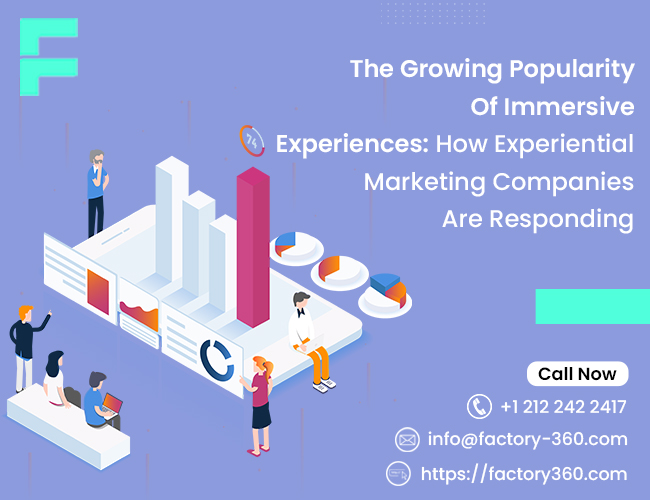The Growing Popularity Of Immersive Experiences: How Experiential Marketing Companies Are Responding
Customers can interact with a business in a distinctive and memorable way through experiential marketing, which focuses on providing an immersive experience for them. In order to increase brand loyalty and sales, experiential marketing aims to build a deep emotional bond between the consumer and the company. Immersive experiences are becoming increasingly popular, and experiential marketing businesses are adapting in novel ways to fulfill both consumer and brand demands.
The Significance of Experiential Marketing Companies And Experiential Agency
Companies that specialize in experiential marketing are at the fore of this movement, continually pushing the envelope of what is conceivable and developing experiences that leave a lasting impression on clients. They are able to employ their in-depth grasp of consumer psychology and behavior to design experiences that connect with their target market.
The Growing Popularity of Immersive Experiences
Immersive experiences have become significantly more well-liked in recent years. Customers are seeking more interesting and interactive methods to interact with brands since they are no longer happy with conventional means of marketing and advertising. Traditional marketing strategies cannot connect brands with their target audience in the same way that immersive experiences can.
Companies that specialize in experiential marketing have reacted to this development by developing increasingly inventive and immersive experiences. They are utilizing cutting-edge technology, such as virtual and augmented reality, to produce really unique experiences. Additionally, they are utilizing analytics and data to better understand consumer behavior and preferences in order to personalize experiences for each client.
Innovative Responses From Experiential Marketing Companies
Companies that specialize in experiential marketing are always looking for new and inventive ways to give their clients fully immersive experiences. The application of virtual and augmented reality technologies is one illustration of this. With the use of this technology, businesses are able to give consumers the opportunity to interact virtually with their products. This works especially well for goods that are challenging to display in a traditional retail setting, like sophisticated machinery or cutting-edge technology.
The utilization of pop-up shops and brand activations is another creative reaction from experiential marketing organizations. These are transient retail locations made to emphasize the uniqueness and urgency of a brand's goods. They are frequently found in busy places like shopping malls or urban cores and are made to catch the eye of onlookers. The reach and impact of the brand's message are boosted by how easily these experiences can be shared on social media.
The Bottom Line
The marketing environment has changed as a result of the rising popularity of immersive experiences, with experiential marketing agencies at the fore of this trend. These agencies are able to give brands a more significant and lasting means to interact with their target audience by developing immersive experiences that completely immerse consumers in a brand's world. The potential for experiential marketing will only increase with the ongoing development of technology and the growing significance of data and analytics. Experiential marketing firms will become more and more important in the marketing mix as brands look to forge deeper connections with consumers.

